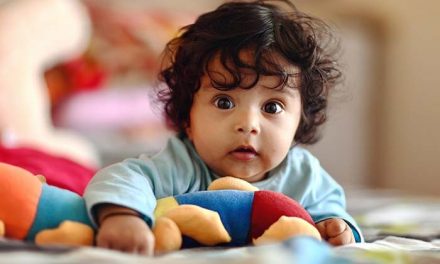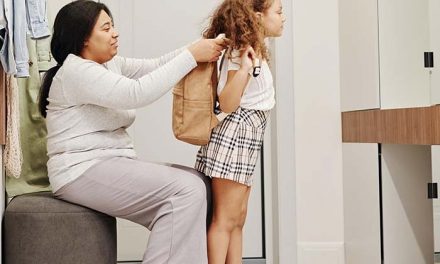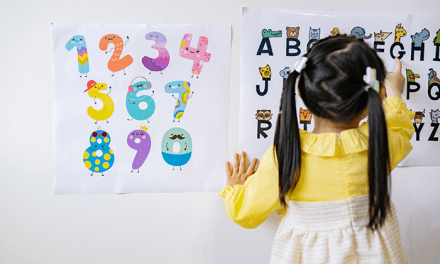Seeing your baby smile for the first time is a precious moment that all parents expect. That innocent smile soon turns into frequent giggles and then comes to those heart-warming laughs. We are sure that every parent wants to capture their babies’ laughing milestones and cherish them forever.
Are you waiting to see your baby’s first smile? Well, in that case, you will be delighted to know this. A baby’s first smile signifies that they have started interacting socially. There are different types of baby laughs and smiles. Your baby will also evolve and go through these different phases with time. Although, it is important to note that not all babies go through developmental phases simultaneously. Nonetheless, a baby’s laugh has its own journey, which is always special.
Stages Of Babies Laugh
Your baby’s first smile is a huge milestone. But what should you expect after that? Ideally, you can mark your baby’s first laugh at around two months old. However, you may have already noticed your baby smiling in their sleep, and here’s why. In response to their external environment, babies smile only on crossing the two-month mark. Babies make involuntary movements when asleep, and a smile is possibly just a reflex action.
Your baby is likely to become more responsive to social cues with time. At three months old, babies start reacting to physical responses like tickling. You may notice a smile or a giggle in response to tickling them. Babies’ laughing milestones continue when they have reached four to five months of age. It is common to see your baby gradually transition from little smiles to laughs. It is the age when they react to sounds and expressions. Well, you know what this means. Time to bring in all the peek-a-boos!
When Do Babies Laugh?
Between 4 to 5 months is also the time when your little one will smile at just about anything. Your baby is likely to smile at funny facial expressions, a toy, or perhaps even a shadow. They are at that age where just about anything seems funny. However, here is where you need a disclaimer. Between all the laughs and giggles, remember that your baby is still well. It is easy to startle or over-stimulate them with your voice or actions. But, your little one shall get agitated by too much physical touch. It is best to give them a break by putting them down for a nap in such cases.
At six months, making eye contact, recognizing people, and spontaneous smiling are some baby milestones to look forward to. It is also the age at which your baby will become selective. Now that they recognize familiar faces smiling at just about anyone is likely to lessen.
The 7 to 8-month period is the most exciting phase of babies’ laughing milestones, as your baby will laugh with satisfaction. This phase moves from cooing and cackling to laughing out loud in happiness. It is also when they start forming emotional bonds with people around them. You will notice your baby interacting more with you and other familiar faces around them.
How To Make Babies Laugh?
While there are a bunch of ways to make babies laugh, here are some of the most common ones:

Making funny faces to your child will make them happy, helping them smile.
- Make Funny Faces– Babies are fascinated with outrageous expressions. So making funny animated faces at them will surely get them to smile or laugh.
- Play Peek-a-Boo– Fun games are a great way to hold a baby’s attention. The good old classic peek-a-boo is a sure-shot winner among young infants.
- Funny or Weird Noises– Squeaky or popping sounds are another good way to get a laugh out of your baby. Sensory cues can instantly get them to react.
- Use Toys that make Sounds– Using toys that make certain sounds can be entertaining for babies. It could be a cartoon character, chimes, rattles, bells, etc.
- A Tickle Session– This one’s a baby favorite. Gently tickling a baby will most certainly make them giggle or laugh. However, you will be surprised to know that it is not the tickle that makes them laugh. Babies tend to laugh with others. So when you tickle your baby, it is not so much the sensation that makes them laugh. They are essentially mimicking your expressions and laughing along with you.
Key Takeaways
Familiar voices and human faces intrigue babies and are likely to keep them entertained. Another important thing to keep in mind is to make sure your baby is well-rested and fed. Perhaps it will give you the best laughs and prepare them for comedy hour. Your baby’s laughing milestones are not just special but also a huge indicator of their developmental phase.






